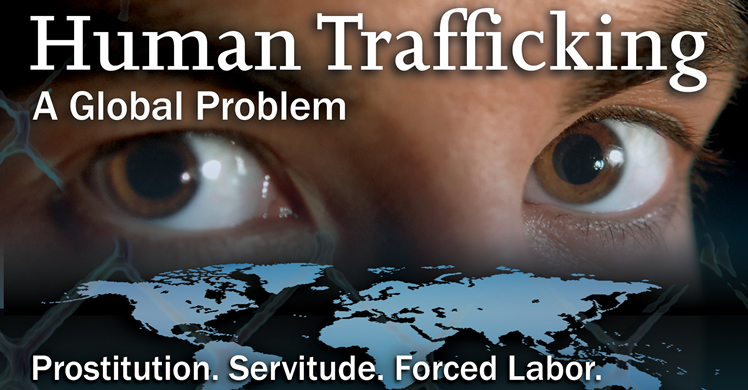Victim assistance specialist, special agent speak to University of Richmond students
U.S. Immigration and Customs Enforcement (ICE) Homeland Security Investigations (HSI) Victim Assistance Specialist Dede Wallace and Special Agent Matthew Rosenberg were guest speakers at the University of Richmond School of Law in Richmond, Virginia, Tuesday, March 1.
Wallace and Rosenberg, who have done numerous presentations and training sessions on human trafficking, both individually and as a team, were invited to speak by the Law Student Human Rights Coalition on the topics of human rights, trafficking and national security issues. The pair gave the approximately 30 students in attendance a crash course on “Human Trafficking 101,” with a heavy emphasis on both federal and state laws.
The timing of the presentation was especially beneficial to the students as the Commonwealth of Virginia became the last state to establish a stand-alone human trafficking law in 2015.
“Naturally, a lot of their questions focused on the legal side of things,” Rosenberg said. “I really tried to give them the lay of the land on the laws of human trafficking and how we conduct our operations.”
Following the class, a majority of the students stayed behind to speak more with Wallace and Rosenberg. Many wanted to know more about human trafficking victims, what they went through and how they could make a difference. Speaking to the students was an opportunity for HSI to inform them about the dangers of human trafficking and remind the students that they too are at-risk.
“They want to figure out how they can help, but they forget why it’s important for high schoolers and college-aged students to know about [human trafficking] because they’re the prime targets,” Wallace said. “If we don’t get to them and inform them about how people are looking for them and want to use and abuse them, that means we’ve left a vulnerable part of the population open.”
Human trafficking is one of the most heinous crimes investigated by ICE. In its worst manifestation, human trafficking is akin to modern-day slavery. Victims pay to be illegally transported into the United States only to find themselves in the thrall of traffickers. They are forced into prostitution, involuntary labor and other forms of servitude to repay debts – often incurred during entry into the United States.
ICE recognizes that severe consequences of human trafficking continue even after the perpetrators have been arrested and held accountable. ICE’s Victim Assistance Program helps coordinate services to help human trafficking victims, such as crisis intervention, counseling and emotional support.


